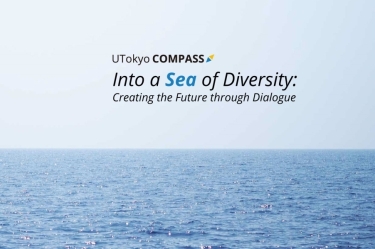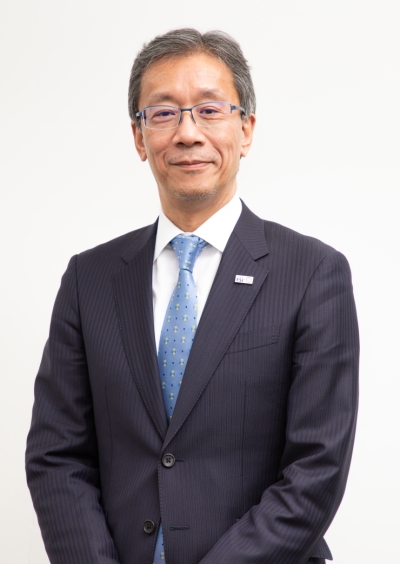Announcing UTokyo Compass 2.0
Even a brief reflection on the past three years reveals that the world we live in has become increasingly complex and unstable. New challenges emerge one after another: not only global-scale issues such as climate change, international conflict, hunger, poverty, and infectious diseases, but also unprecedented difficulties and divisions unique to each region. In the face of these challenges, our philosophy for how we should live as human beings will once again be questioned. Such issues cannot be resolved using existing methods and frameworks. Innovative ways of applying academic knowledge and developing methodological expertise are now needed. We believe that universities are uniquely positioned to tackle these challenges and devise solutions in ways that are both specialized and multifaceted as well as integrative and fundamental.
In this update to UTokyo Compass, we place the concept of design at the core of the scholarship and approaches needed to resolve such problems. For us, design means much more than merely devising solutions and making them aesthetically pleasing. Rather, design is about creating processes for examining challenges closely, discovering useful ways of thinking, and engaging in dialogue with stakeholders to devise paths toward solutions.
In university learning, it is not enough to tackle assigned tasks creatively and pursue advances in existing knowledge and technology. While those are important, we must also integrate different types of knowledge, both toward our individual goals and for confronting problems that trouble the world. Design not only involves setting collaborative objectives inspired by specific visions of the beneficiaries, purposes, and methods. It also entails creating and organizing systems that foster people’s positive engagement in working toward solutions.
Also being questioned are the limitations of the traditional educational system’s approach to learning, which has been designed by the suppliers of knowledge. When we rethink the university as a place for research and education from the perspective of the demand side—that is, our students—we see that, in order to engage seriously with challenges, we must build an enhanced environment that removes the barriers separating the natural sciences from the humanities and social sciences, transcends disciplinary boundaries, and fosters an awareness of the connections between academia and society.
It is impossible to address the challenges of global society as an individual person or through any single academic field. What is needed is cooperation among a diversity of people. Our university must become an environment where students and researchers with various backgrounds and characteristics can come together from throughout Japan and around the world to proactively engage with challenges, connect the necessary knowledge together, and create synergies in their pursuit of specialized expertise. It is through such cocreation and linkages that academic excellence will advance further.
UTokyo Compass 2.0 incorporates initiatives for strengthening our foundation for autonomous and creative university activities, including the transformation of the Division for Financial Management into the Office of the Chief Financial Officer, the enhancement of specialized human resources in both number and quality, and the establishment of the Division for Strategic Communications (tentative title). We are also revising our roadmap toward carbon neutrality in our operations, developing a data-driven infrastructure to help solve societal challenges, and building a community for promoting interdisciplinary research. We have also established our new Center for Coproduction of Inclusion, Diversity and Equity (IncluDE) to advance the inclusivity of our campuses. We will promote the flourishing of diverse scholarship through the establishment of a research intelligence organization and the digital transformation of our research resources, including our digital library. We have already established our Center for Global Education (GlobE) to implement university-wide educational support for fostering globally capable individuals.
The key advances described in UTokyo Compass 2.0’s Specific Action Plans include the establishment of a comprehensive entrepreneurship support system that positions startups as pioneers of social value; the founding of the College of Design (tentative title) as a new undergraduate educational initiative to cultivate individuals with specialized expertise and broad knowledge as well as high ethical standards and the ability to confront challenges through a design mindset; the construction and realization of a new university model that includes the establishment of stronger management capacity; and the diversification of our admissions policies, which is also being addressed through undergraduate education reform based on our Long-Term Academic Vision. We have already been promoting the diversification of student selection through school recommendations, special screening for graduates of foreign schools, and Programs in English at Komaba (PEAK), and we will continue to explore ways to further increase the diversity of our incoming students. This exploration will provide new perspectives for discussions on future directions for reform, including in pre-university education.
To ensure the continuation of our creative endeavors, we need the understanding, agreement, and support of everyone in our surrounding society. We will further expand and utilize our endowment (tentatively to be called the University Operating Endowment) as a financial foundation to enhance our newly established educational and research organizations. At the same time, we will develop a new governance structure for endowment-based management.
Through the various initiatives described in UTokyo Compass 2.0, we aim to create a virtuous cycle that will powerfully advance the worldwide network centered around the University of Tokyo and further invigorate our institution.
May 31, 2024
Teruo Fujii
President
The University of Tokyo



 (PDF:618KB)
(PDF:618KB) 





